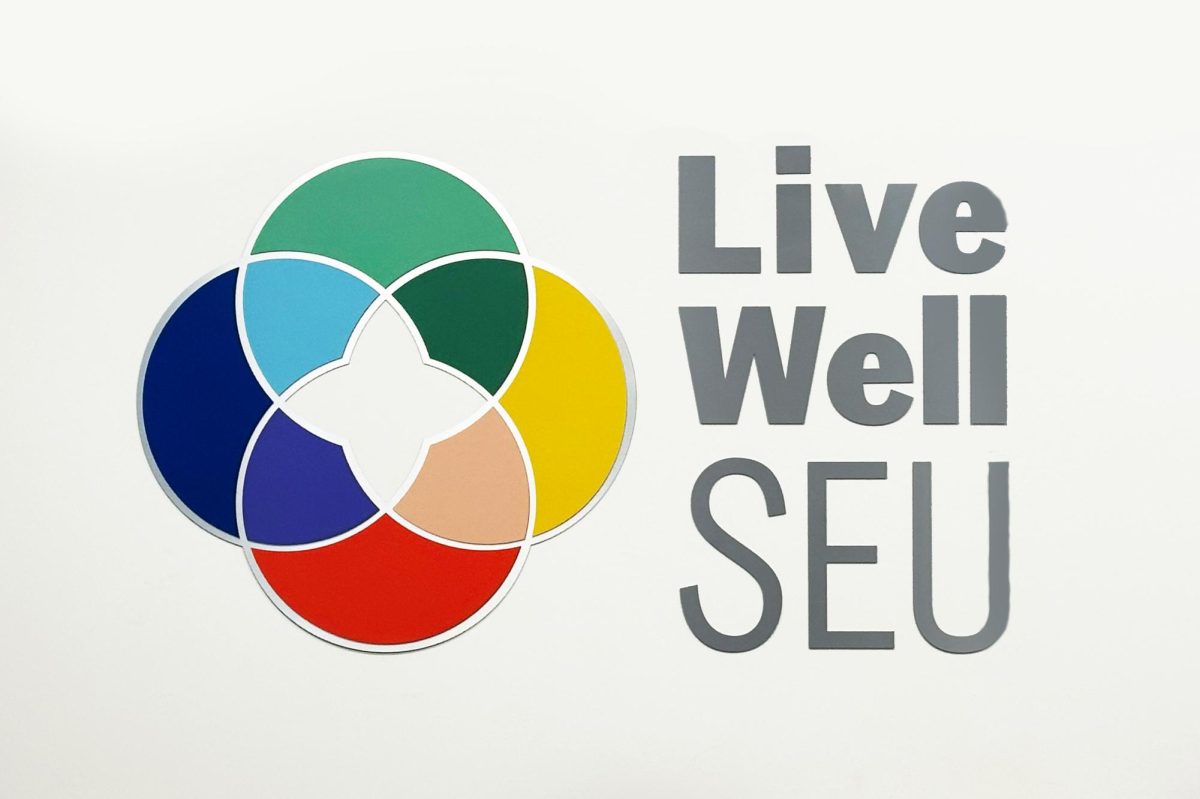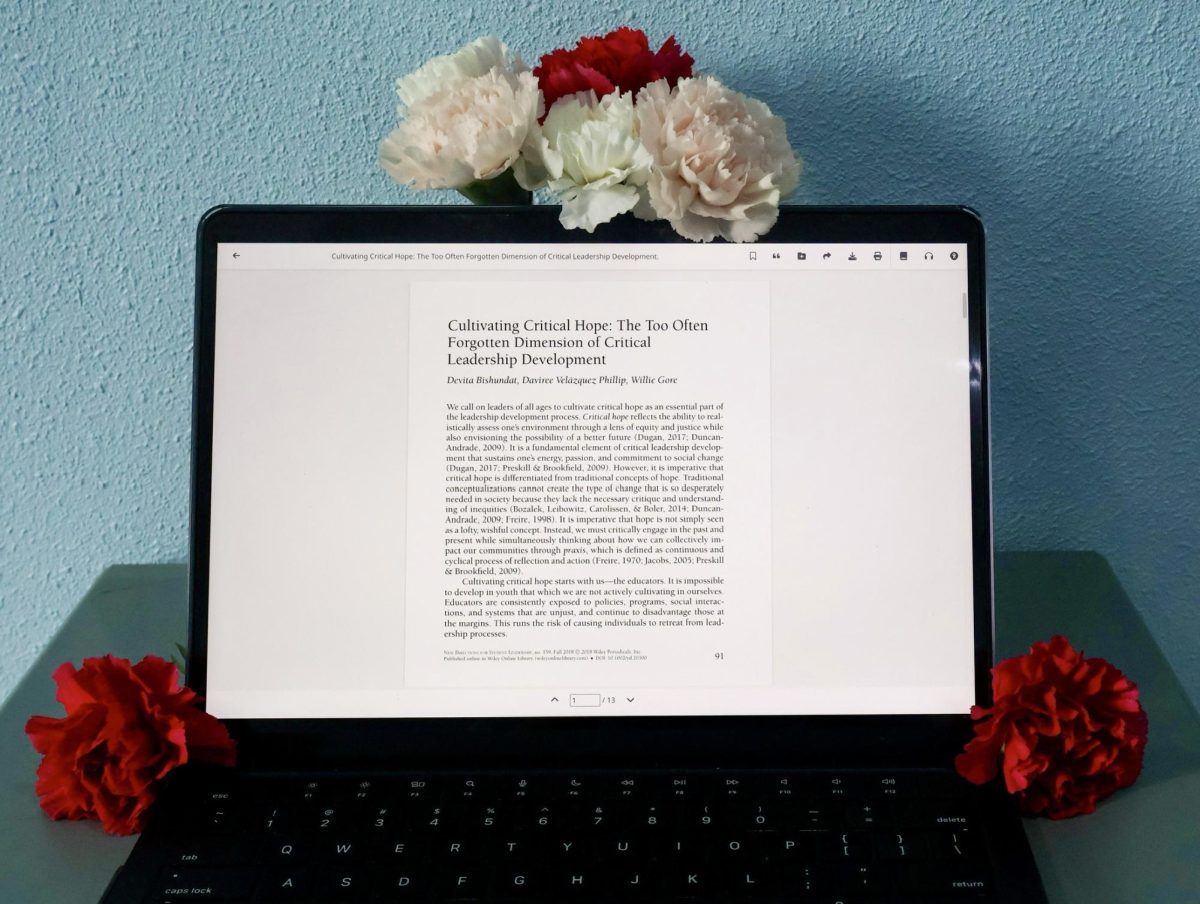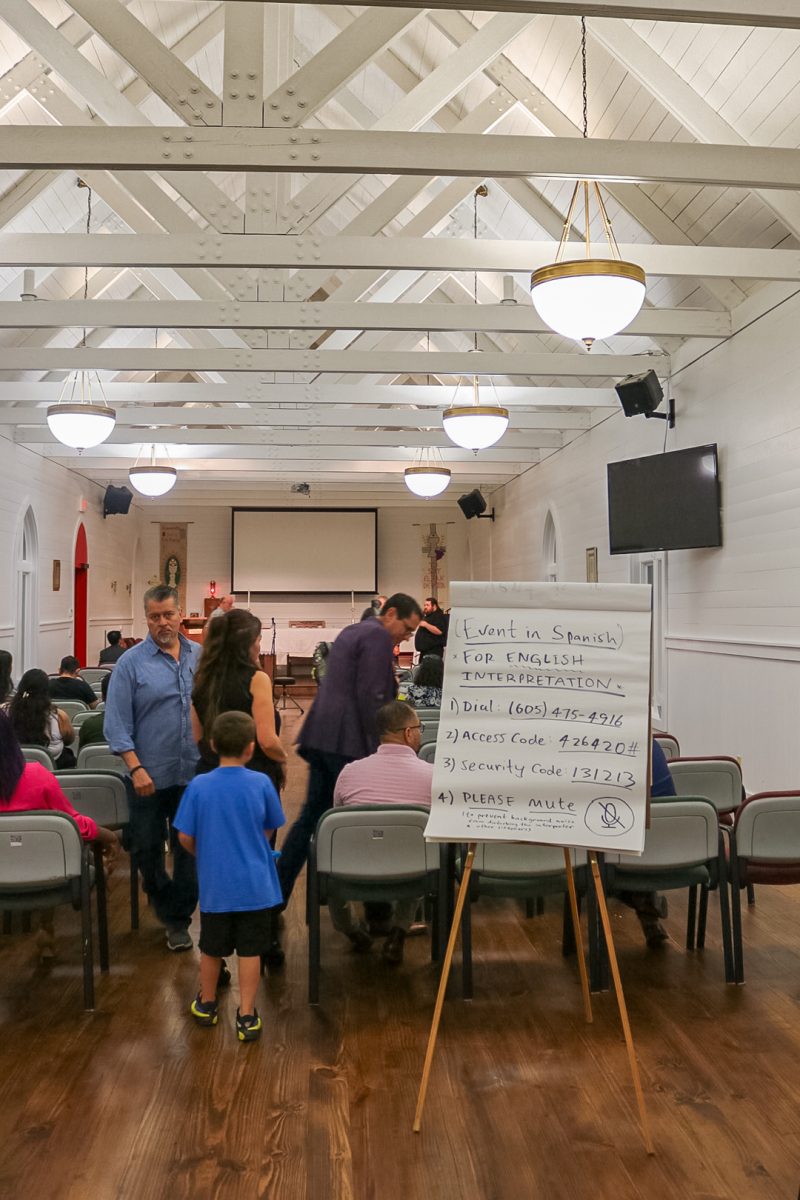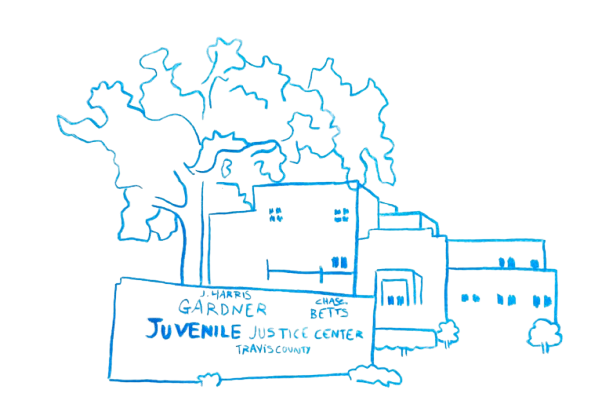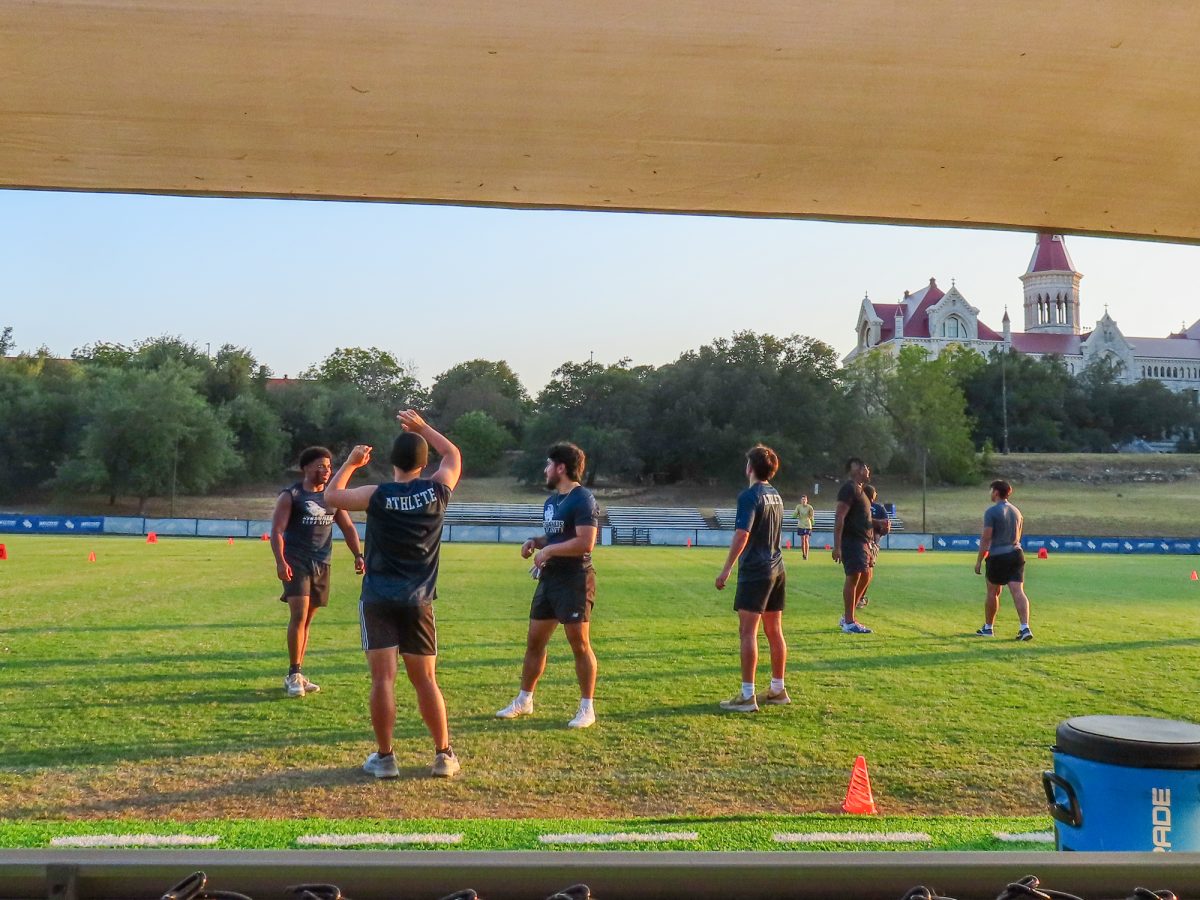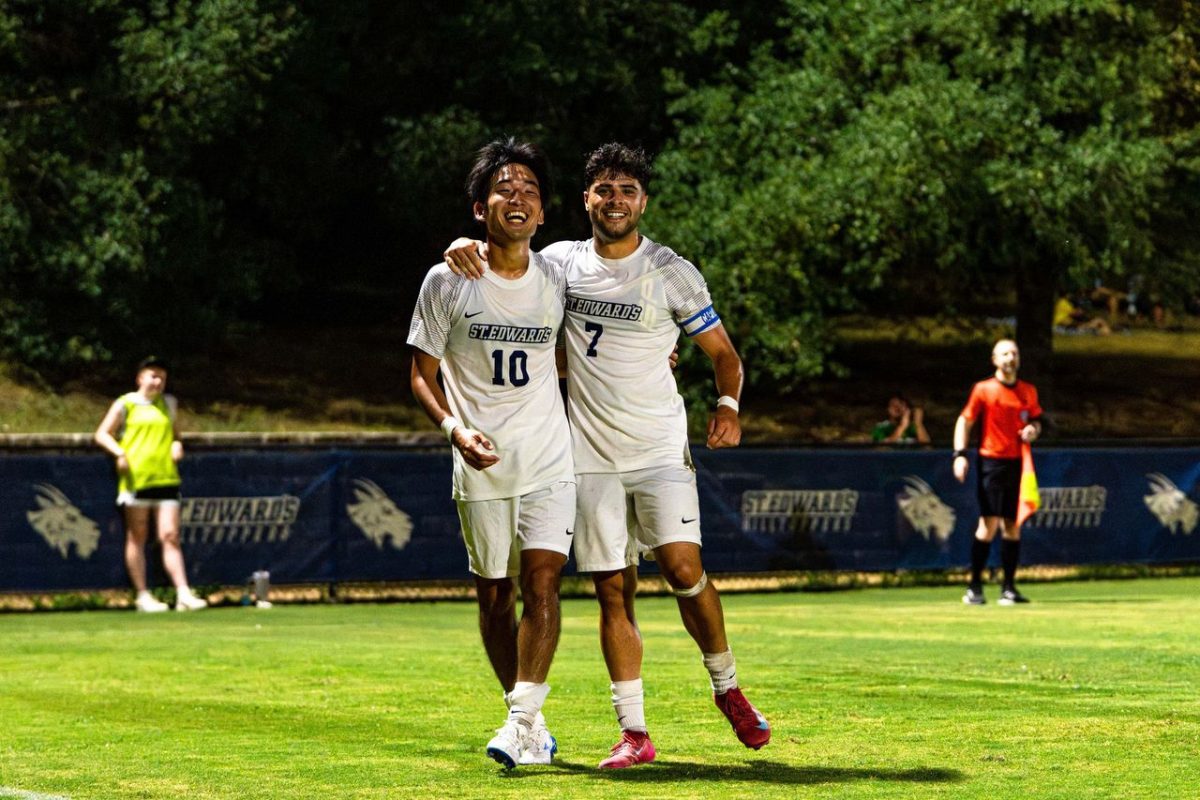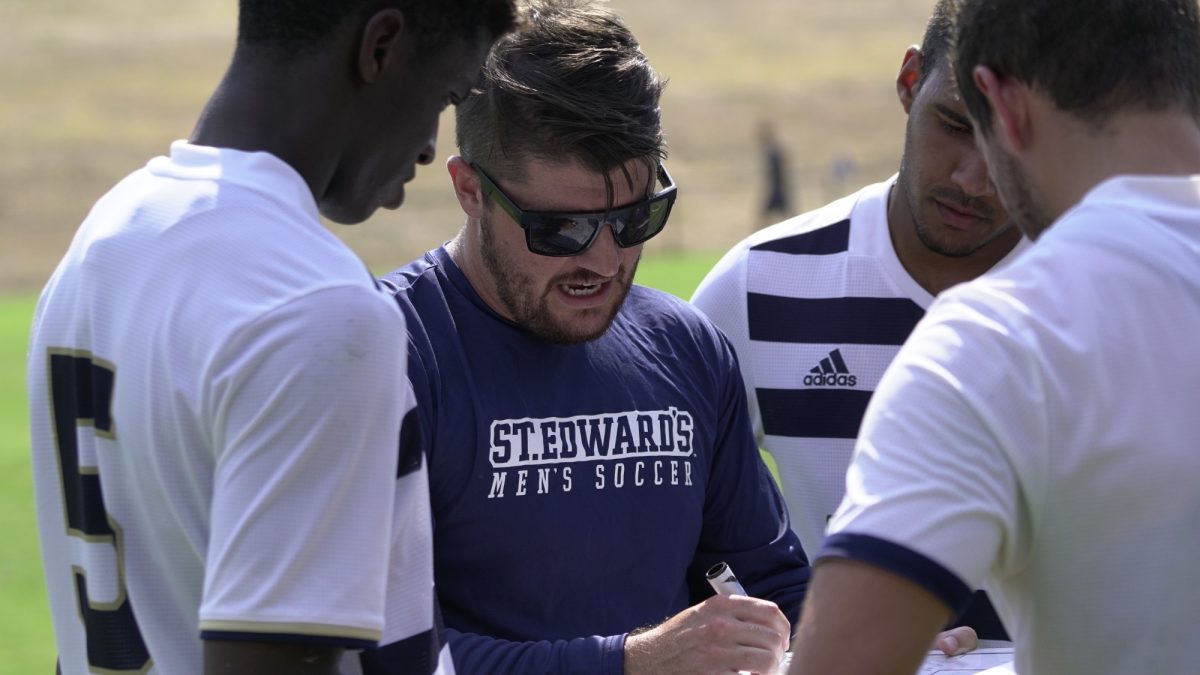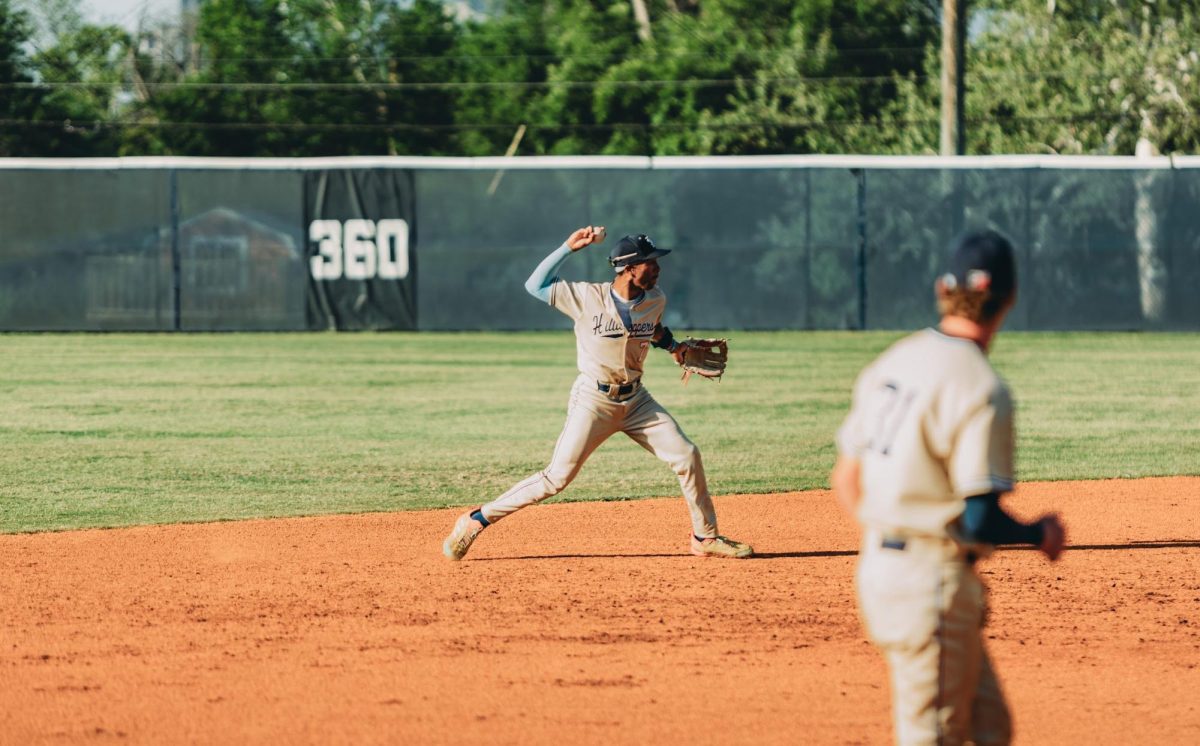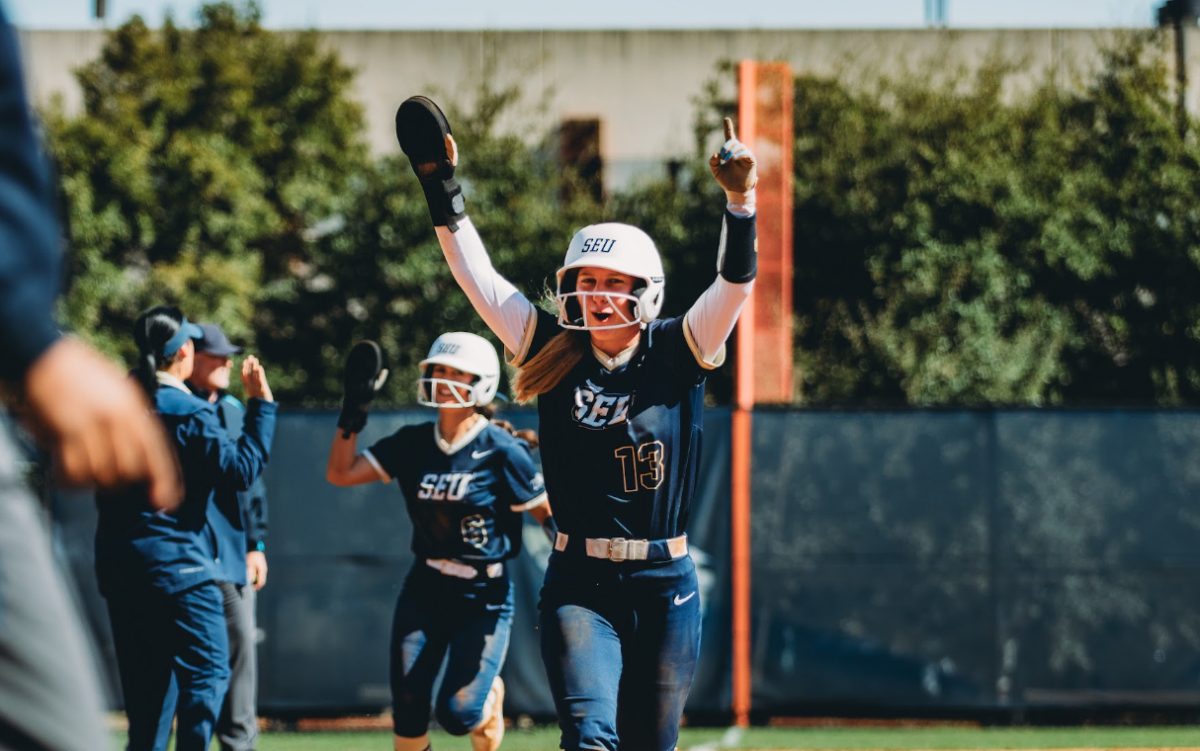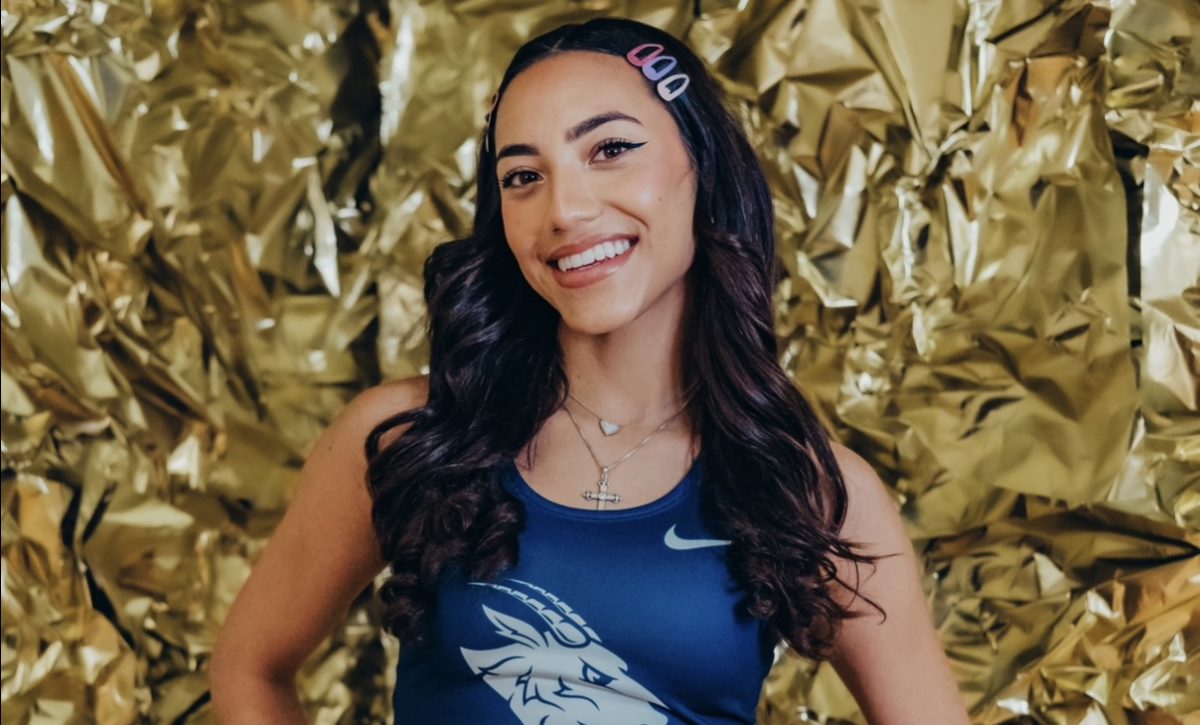At St. Edward’s University, women’s basketball represents one of the most high-profile and demanding athletic programs on campus.
Competing at the NCAA Division II level requires student athletes to balance the physical demands of training and competition with the mental challenges of academic pressure. Recognizing the toll this can take on student-athletes, the university has taken steps to support the mental and emotional well being of its basketball players through a network of both formal and informal resources.
One of the resources is sports counseling administered through Ashley Kuchar, a private counselor with a Ph.D. in Educational Psychology, whose practice is called Fail Better Training.
“If you think about sports, so much of sports is mental,” Kuchar said. “So that’s my job is to fill in that gap. So that could be things like working on self-talk that’s more effective.”
If athletes or teams schedule appointments with Kuchar, the team has to cover the cost. Otherwise, athletes can also visit the campus Health & Counseling Center. Kuchar’s specialty is helping them to improve their athletic performance.
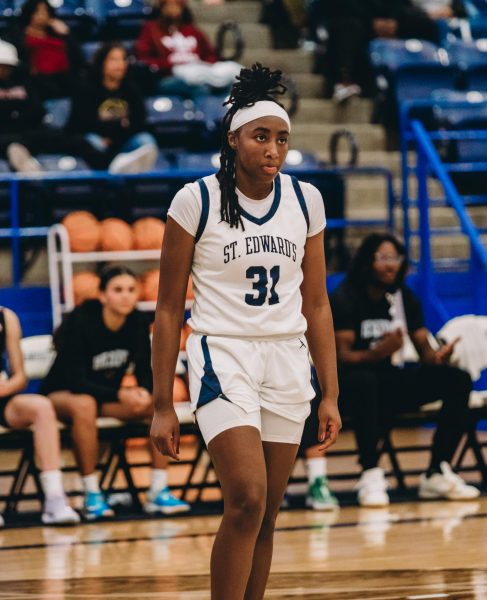
“Ashley was definitely more of a person that I went to than the health center,“ said Mikah Chapman, a forward on the St. Edward’s women’s basketball team. “She could talk to the coaches. I just gave feedback if I wanted her to give feedback to the coaches of how I felt. And then if you wanna keep going individually, you get her number.”
The NCAA has reinforced the importance of having accessible mental health resources for student athletes. Last year, the organization released an updated version of its Mental Health Best Practices document. These best practices, adopted in 2022, reflect the commitment that all schools within the NCAA, regardless of division, promote an environment that reinforces physical and mental health support and education that aligns with the best practices.
A key strength of the basketball programs at St. Edward’s lies in the close relationships players build with their coaches, assistant coaches and athletic trainers. These staff members often serve as the first point of contact when a player is struggling. While they are not licensed mental health professionals, their day-to-day interactions with players put them in a strong position to notice when someone may need additional support.
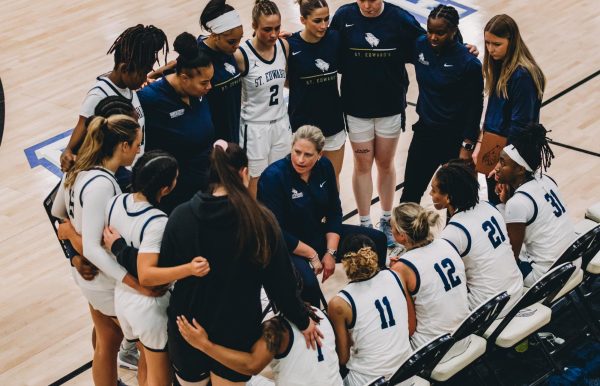
“I think in general, you have to have an environment that’s genuine and that’s built on relationships, like me as their coach,” said JJ Riehl, the head women’s basketball coach at St. Edward’s. “They have to feel comfortable being able to come in here and talk to me about things, and put themselves out there.”
Athletic trainers, who work closely with athletes through injuries and recovery, are also an important source of emotional support. Injuries can be mentally draining, especially when they remove players from competition for extended periods. Trainers at St. Edward’s are equipped to identify signs of emotional distress during rehabilitation and can help players access additional care.
“A lot of times, I’m gonna talk to them. Or if it’s a little bit deeper and out of my scope, I’ll be like, ‘okay here’s a card for counseling services’,” said Larry Gipson, the St. Edward’s women’s basketball athletic trainer. “Because a lot of times, it’s not necessarily the injury that’s bothering their mental health. Sometimes it’s really the outside pressures with their social life and stuff like that.”
Players on the women’s basketball team have access to a growing network of support.
In addition to the Health & Counseling Center, which serves as the primary mental health resource for all students, basketball players have access to including individual counseling, group services and workshops. Services are available by appointment and are offered both in-person and virtually to accommodate different schedules.
Counselors at the Health & Counseling Center are trained to address common issues faced by college students, such as anxiety, depression and academic stress. While not specific to athletes, the services can be tailored to meet the unique needs of basketball players who may be navigating performance pressure, injury recovery, or burnout.
And there are other resources. The new student orientation covers campus wellness resources and information for several hotlines that are available. During orientation, basketball players participate in sessions geared to athletes. They meet athletic staff, as well as success coaches and academic advisers. Conversations may include managing stress, building healthy routines and knowing where to go for help.
Topper Pride classes, which are designed to support first-year student-athletes and transfers, incorporate themes like self-care, resilience and time management into both their curriculum and personal lives. While not sports-specific, this course helps build foundational skills that can support student-athletes throughout their time at the university.
Even with these resources in place, basketball schedules are demanding. With practices, games and travel, availability for appointments or wellness activities is often limited. Athletes may hesitate to seek help, either out of concern for how it might affect their role on the team or because they don’t want to fall behind academically.
As the demands of college basketball continue to evolve, so too does the importance of ensuring that athletes have what they need not only to compete, but to thrive.
“Yes, it is an investment and takes financial investment on the front end,” Kuchar said. “But, you will see the impact on the back end for sure.”

